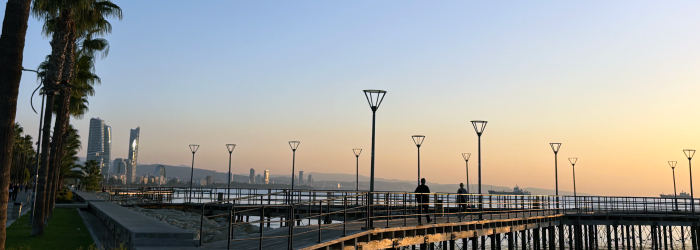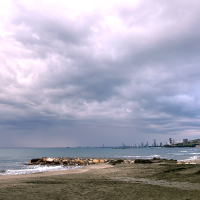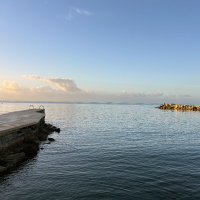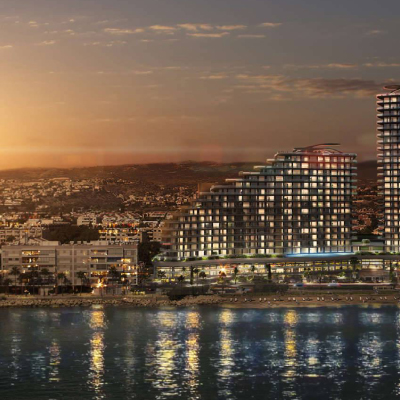
Recommended contact person
Private Wealth Strategies 2025 – 2026: Why Cyprus? When Greece or Dubai make sense?

🎧 Also available in our Podcast series Deep Dive.
Listen now
Ultra-high-net-worth families are re-drawing their maps. The past five years rewired the rules: transparency has gone mainstream, “offshore” is out of fashion, and governments are openly competing for talent and capital. For globally mobile founders, family offices and next-generation heirs, three hubs now dominate serious conversations in EMEA: Cyprus, Greece, and Dubai (UAE). Each offers a different blend of tax, lifestyle, governance, and market access.
In this article we provide a practical, detail-rich guide to what works, why families are shifting, and how to structure it cleanly.
What sophisticated families actually want
Beyond low tax headlines, families typically optimize, in our opinion, for eight things:
- Predictable personal taxation on investment income and exit events.
- Mobility for principals and key staff (residency rights, visas, work permits).
- Asset-holding and governance tools that work across borders (trusts, foundations, PTCs).
- Corporate efficiency (IP regimes, participation exemptions, treaty access, substance that’s achievable).
- Regulatory credibility (OECD-aligned, bankable, not “too exotic”).
- Talent and schools, healthcare and connectivity (this matters for relocation actually sticking).
- Time-zone fit for the family’s operating businesses.
- Resilience to policy changes (diversification across jurisdictions and rules).
Cyprus, Greece and Dubai each score differently across this grid. Used together, they cover the bases remarkably well.
Cyprus: the natural hub for European wealth
Why Cyprus leads
Few EU jurisdictions have managed to combine low taxation, easy residency, and genuine lifestyle appeal as effectively as Cyprus.
1. The Non-Dom Advantage
Cyprus’ most powerful tool is its Non-Domicile regime. Any individual who becomes tax resident in Cyprus (under either the 183-day or 60-day rule) but is not domiciled there enjoys zero tax on dividends and most forms of passive income.
This “non-dom” status lasts for 17 years, giving families a long window of predictable, low-tax residency.
When combined with Cyprus’s personal income tax thresholds and exemptions, it can result in very low effective taxation for investors, entrepreneurs, and retirees alike.
2. Residency that fits real life
Becoming tax resident in Cyprus is straightforward. The 60-day rule applies to anyone who spends at least 60 days in the country, is not tax resident elsewhere, maintains a home or business here, and has genuine local ties.
For non-EU nationals, Permanent Residency (Regulation 6(2)) remains one of the most practical and efficient EU residency programs, typically based on a €300,000 investment in real estate or other qualifying assets.
There are no complex stay requirements, and family members can be included, making Cyprus particularly appealing to families who want both flexibility and European access.
3. Corporate tools that actually work
Cyprus has built a reputation for offering real-world, bankable tax planning, not theoretical schemes.
- Corporate tax: A flat 12.5% – among the lowest in the EU.
- Intellectual Property (IP) Box: 80% deduction on qualifying IP income, bringing the effective tax rate down to around 2.5% – fully compliant with OECD standards.
- Notional Interest Deduction (NID): Allows a company to deduct a notional return on new equity, aligning the treatment of debt and equity and enhancing capital efficiency.
- Participation exemption: Dividends from qualifying subsidiaries are generally exempt from tax.
- No withholding tax: Dividends paid to non-residents carry no withholding tax.
Crucially, it is both affordable and simple to create genuine substance in Cyprus, through local directors, offices, and employees, satisfying international compliance and banking standards.
Taken together, these features make Cyprus one of the most credible and efficient holding jurisdictions in the EU, ideal for IP, trading, investment, and family office structures.
4. Trusts and family governance
Cyprus has a mature trust law regime, aligned with international standards but highly flexible in practice.
A Cyprus International Trust (CIT) allows global settlors to hold and protect wealth for beneficiaries anywhere, with full control through letters of wishes or the use of a Private Trust Company (PTC).
Combined with non-dom status and Cyprus tax residency, a CIT can become the cornerstone of a family’s multi-generational structure.
Greece: where lifestyle meets opportunity
Greece’s economic transformation over the past decade has been remarkable. The government has introduced a series of investor-friendly tax regimes designed to attract wealth, retirees, and entrepreneurs, all while the country enjoys a resurgent real estate and tourism market.
1. Non-Dom regime for HNWIs
Greece’s non-dom program allows individuals who move their tax residence to Greece to pay a flat annual tax of €100,000 on foreign-source income, regardless of its amount. The regime can last up to 15 years, and additional family members can be added for €20,000 each per year.
This has proven particularly popular among shipping families and Greek diaspora investors returning home with global portfolios.
2. Pensioners and retirees
Foreign pensioners who relocate to Greece benefit from a 7% flat tax on foreign pensions and related income for 15 years, one of the lowest rates globally for retirees seeking an EU base.
3. Residency by investment
The Greek Golden Visa remains one of the most desirable in Europe, offering Schengen access and the right to reside in Greece with minimal stay requirements.
The minimum investment threshold has recently increased (ranging from €400,000 to €800,000 depending on the area and property type), but demand continues to rise, driven by Athens’ cultural appeal and the booming property market.
4. Why families choose Greece
Greece attracts those who value European lifestyle, culture, and education but want a more moderate tax framework than Northern Europe. However, running a full holding or operating structure purely in Greece can be costlier and administratively heavier, and slower.
For that reason, many clients combine Greece for residence and lifestyle with Cyprus for their corporate or holding structure, an increasingly common and efficient hybrid model.
Dubai: the new global capital of private wealth
The United Arab Emirates, especially Dubai, has evolved into a world-class destination for private wealth and family offices. It combines zero personal income tax, a modern business environment, and elite infrastructure with remarkable international connectivity.
1. Tax and corporate flexibility
Since 2023, the UAE applies a 9% federal corporate tax on business profits, with exemptions for qualifying free zone companies that meet specific substance and activity requirements.
For most family offices, investment vehicles, and service companies operating within DIFC or ADGM, the effective tax rate can remain at 0%, provided they comply with these rules.
There is no personal income tax, no capital gains tax, and no inheritance tax.
2. Long-term residency and mobility
The Golden Visa offers 10-year renewable residency for investors, executives, and family members, without the need for a local sponsor. It has become one of the world’s most flexible mobility tools, ideal for families and entrepreneurs seeking a stable, tax-free residence base in the Middle East.
Golden Visa holders benefit from:
- No requirement for a UAE-based employer or local sponsor.
- The ability to sponsor family members under more flexible rules and to stay outside the UAE for extended periods without jeopardising the visa.
3. Governance and family structures
Both DIFC and ADGM operate under English-law-based systems and host some of the world’s most advanced family office and foundation frameworks.
The DIFC Family Arrangements Regulations (2023) introduced a simplified structure for single- and multi-family offices, while ADGM foundations remain a preferred vehicle for wealth holding, governance, and succession.
These platforms allow families to build institutional-grade structures with proper governance, dispute-resolution mechanisms, and international credibility — all within a tax-efficient environment.
Why wealth is moving: from London and offshore islands to Cyprus, Greece, and Dubai
Over the past few years, private wealth has shifted decisively from traditional jurisdictions such as the UK, Channel Islands, and Caribbean centres toward the Cyprus-Greece-Dubai triangle.
The reasons are structural:
- The end of the UK non-dom regime (from April 2025) is prompting a mass re-think among long-established international families.
- Transparency and substance rules now make it expensive and less practical to operate in “offshore” jurisdictions without a real presence.
- Families increasingly want EU protection, credible governance, and places they can actually live, not just register a company.
- The pandemic effect proved that lifestyle, healthcare, and logistics matter as much as tax, and all three destinations offer genuine quality of life.
The result is a more balanced approach: one jurisdiction for residency, one for corporate substance, and one for regional operations or mobility.
Three real-world strategies that work
1. The tech founder or investor
Base: Cyprus (non-dom, 60-day rule)
Structure: Cyprus IP company under the IP Box; Cyprus HoldCo for investments; CIT or PTC for family wealth.
Result: EU credibility, 2.5% IP tax rate, no tax on dividends, and strong asset protection.
2. The Greece-rooted family
Base: Principal in Greece using the non-dom flat tax; family members with Cyprus holding companies.
Structure: Cyprus HoldCo for investments; Greek real estate and lifestyle.
Result: Access to Greece’s lifestyle and EU base, with Cyprus providing efficient corporate and tax planning.
3. The global family office
Base: Dubai (Golden Visa, DIFC or ADGM foundation).
Structure: UAE family office as the apex; Cyprus companies for EU investments; optional Greek real estate for residency or lifestyle.
Result: Tax-free operations in Dubai, treaty benefits via Cyprus, and EU access through Greece.
Doing it right: what matters in execution
- Substance must be genuine. Whether in Cyprus or the UAE, having local directors, board meetings, and operational activity matters. It’s not bureaucracy, it’s what keeps your structure defensible and bankable.
- Governance before tax. The best structures start with clear governance; trusts, foundations, shareholder agreements, protectors, and only then optimise taxation around them.
- Periodic review. Tax and residency regimes evolve. Building annual review points into your family governance plan keeps structures compliant and efficient.
How can AGPLAW help
At AGPLAW, we sit at the intersection of private client, corporate, fintech, shipping, and regulatory law, exactly where today’s global families need multidisciplinary support.
We advise and implement across all three jurisdictions, Cyprus, Greece, and Dubai, ensuring every layer of your structure works together seamlessly.
Our services include:
- Residency and relocation planning (Cyprus 6(2) PR, Greece Golden Visa, UAE Golden Visa).
- Personal tax optimisation, including Cyprus non-dom and first-employment exemptions, Greece’s lump-sum and pensioner regimes.
- Corporate structuring and tax planning, including Cyprus IP Box, NID, participation exemption, and UAE free-zone compliance.
- Trusts, PTCs, and foundations: from Cyprus International Trusts to DIFC/ADGM foundations.
- Family office setup, substance, governance, employment, and compliance.
- Succession and asset protection planning, letters of wishes, protector structures, pre- and post-marital arrangements, and inheritance coordination.
Every plan we design is practical, compliant, and aligned with the family’s personal and commercial goals.
Final thoughts
The world of private wealth is no longer about hiding assets, it is about protecting and growing them transparently, efficiently, and across borders.
Cyprus, Greece, and Dubai together now form one of the most powerful and sustainable combinations for international families:
- Cyprus as the EU base and tax-efficient hub;
- Greece for lifestyle, heritage, and selective incentives; and
- Dubai as the global, tax-free operations and governance centre.
At AGPLAW, we help families connect these jurisdictions into one coherent, future-proof strategy, a structure that protects their wealth, preserves their legacy, and supports the next generation to thrive.
The information provided by AGPLAW | A.G. Paphitis & Co. LLC is for general informational purposes only and should not be construed as professional or formal legal advice. While every effort has been made to ensure the accuracy and reliability of the information contained herein, the author, publisher, or any related parties make no representations or warranties of any kind, express or implied, about the completeness, accuracy, reliability, suitability, or availability of the information. In no event will the author, publisher, or any related parties be liable for any loss or damage, including without limitation, indirect or consequential loss or damage, or any loss or damage whatsoever arising from loss of data or profits arising out of, or in connection with, the use of this document/article. You should not act or refrain from acting based on any information provided above without obtaining legal or other professional advice.















